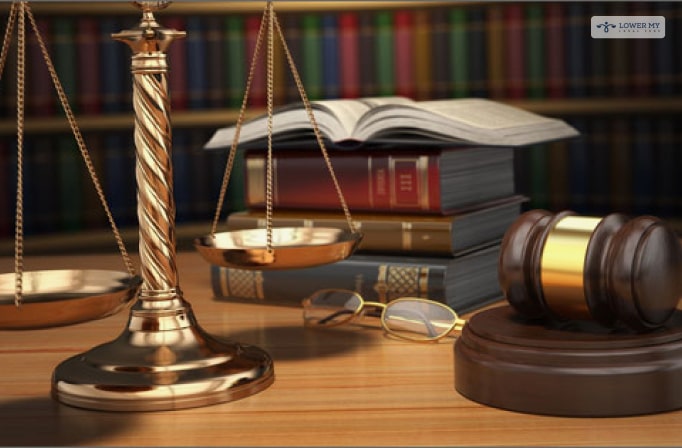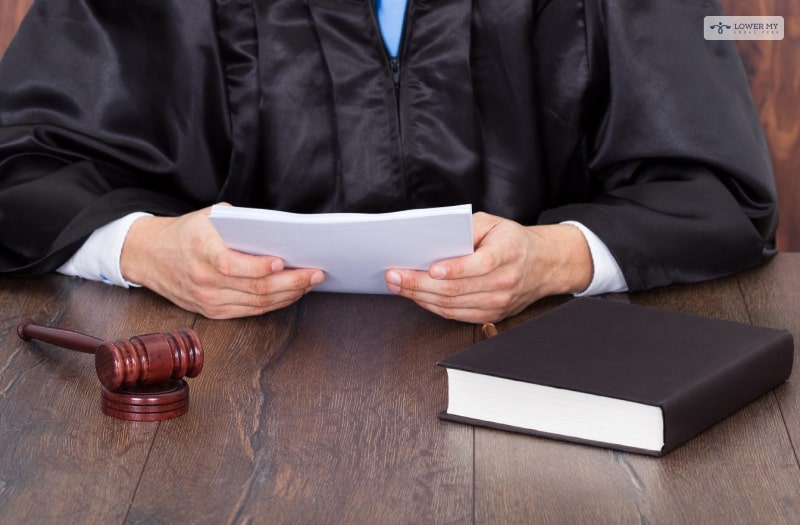Are you seeking a way to prove your innocence in a criminal trial? If Yes, You have come to the right place. In this article, we will tell you about exculpatory evidence and how it can help you prove your Innocence or that you are not guilty.
What Does Exculpatory Evidence Mean?
Exculpatory evidence disproves the defendant’s culpability of a crime.
- Exculpatory evidence is the evidence which proves that a defendant is innocent.
- Under the Due Process Clause of the 14th Amendment to the United States Constitution, all parties to a legal charge shall be given equal rights to present their case.
- Only after hearing both parties completely that the court will arrive at a decision.
- Like the prosecution, a criminal defense attorney will play a very important role in identifying and producing relevant evidence to the Court to prove their client innocent.
This evidence is called exculpatory evidence.
Inculpatory Evidence And Exculpatory Evidence

Inculpatory Evidence holds the defendant culpable in a crime.
Just like exculpatory evidence can absolve a person of guilt of committing a crime. Inculpatory evidence proves the person’s guilt in a criminal case.
Exculpatory Evidence And The Brady Rule
Have you heard of the Brady v. Maryland case? It involves John Brady and Donald Boblit, convicts of a first-degree murder.
- This case took place in 1958 in Maryland. The prosecution lawyer held John and Donald guilty based on their statements to the police, and witnesses delivered testimony.
- As the trial went on, John’s defense attorney requested all concerned with the case for any evidence that could help John’s case.
- During the trial, the prosecution gave several statements and documents to prove John’s guilt; however, he withheld vital information.
- Donald had admitted to committing the murder, thereby absolving John of any blame.
- Donald had admitted his crime to the police. However, since the prosecution kept this evidence hidden, the Jury held both John and Donald guilty. Donald got a life sentence, whereas John received the death penalty.
- John’s defense team later learned of the statement and filed for an appeal at the United States Supreme Court.
- The Supreme Court held in this Landmark decision that the prosecution clearly violated the due process clause. The 14th Amendment of the Constitution guarantees due process.
- withholding important evidence
- Ever since, this rule of complete disclosure of any evidence is known as the Brady disclosure. Another name for exculpatory evidence is Brady Rule, named after John Brady.
What Can Exculpatory Evidence Include?

Exculpatory evidence can be of various types. For any evidence to become exculpatory evidence, it needs to prove that the defendant in the case is innocent. All forms of evidence are essential to a trial because they ensure a fair trial without wrongful convictions.
Let us look at the various types of evidence that under this category.
Alibi
An alibi is someone or something that can demonstrate the incident to a court.
- They prove the defendant could not have committed the crime because he was present elsewhere.
- Witnesses’ testimonies, electronic records, and even surveillance footage are all forms of Alibi.
- Surveillance footage is compelling when it comes to exculpatory evidence. The concept is straightforward.
- Suppose footage from across the street or even private cameras captures the defendant in a different location than that of the crime at the time of the crime.
- In that case, it almost certainly absolves the defendant of the crime.
Testimonials And Contradictions
Any witness who can disprove the charges held against the defendant can be considered exculpatory.
- For example, if a witness says they saw someone else commit the crime, it disproves the defendant’s guilt.
Forensic Evidence
If a forensic analysis and the results refute the defendant’s guilt, that will become exculpatory.
- Forensic evidence can include the following:
- DNA,
- fingerprints,
- firearms,
- weaponry,
- blood stains,
- toxicology reports, and
- digital data collected from computers, phones, or other technology.
Forensic evidence can also sometimes include voices heard in recordings.
Statements Delivered By The Defendant Or Witness
Like in the case of John Brady, if there is more than one accused in a crime, and the other delivers a confession to having committed the crime, this will qualify as exculpatory evidence for the other one.
Other Forms
If any evidence shows that the defendant being accused of committing the crime is physically incapable of committing it, that will be exculpatory in nature.
- Any evidence proving that the defendant is of good character can be exculpatory in nature.
- All such evidence that shows that the defendant’s confession was not obtained freely, or was obtained under false pretentious or duress, will be exculpatory in nature.
This only proves that exculpatory evidence can take any form as long as it establishes the descendant’s innocence.
Exculpatory Evidence Withheld By Prosecution

Does a prosecutor have to disclose exculpatory evidence? Well, yes. It is absolutely necessary for the prosecution to bring to the Court any evidence that is exculpatory in nature. Withholding exculpatory evidence goes against the defendant’s constitutional right to a free and fair trial.
All parties involved in a legal proceeding should be subjected to the due process of law. This means that both parties should have all facts of the case along with evidence disclosed to the court. Only after that is done can the Court come to a decision that is fair, based on the merits of the case.
If exculpatory evidence is withheld from the Court, it can lead to the following consequences:
a. If any evidence is hidden from the Court, which could have changed the results of the case, the Judge can overturn the conviction.
b. Any party who withholds evidence regarding a case can face contempt of court.
c. A prosecutor who deliberately withholds evidence will face disciplinary actions by state bar associations. They can be suspended or even lose their license to practice.
d. A defendant who was wrongfully convicted due to the withholding of exculpatory evidence can sue the prosecution for damages.
e. If the evidence withheld is too great, the prosecution may even face criminal charges.
Final Word: Is Exculpatory Evidence Admissible In Court?
The concept of exculpatory evidence, or evidence as a whole, has evolved a lot throughout history. Evidence can be used to prove the defendant’s guilt or innocence. The specific term “exculpatory evidence” was not much in use throughout history, but the underlying principles have been present for a while.
In ancient times Greece and Rome recognised the need for fairness in all trials. Greece, in particular Athens, had a vivid legal system. There were specific laws that allowed defendants to present their cases to prove their innocence.
The legal system evolved over time, and English common law recognized principles of innocent until proven guilty. The 20th century saw big developments in principles of exculpatory evidence with Brady v. Maryland. After the Brady rule was established, multiple other case laws proved that evidence from both parties in a trial was equally important, and that included exculpatory evidence.
Some of these famous cases include:
- Giglio v. United States of 1972.
- United States v. Bagley in 1985.
- United States v. Ruiz in 2002.
These cases mentioned above held the credibility and responsibility of the government in disclosing any evidence that was exculpatory in nature.
Read More:






